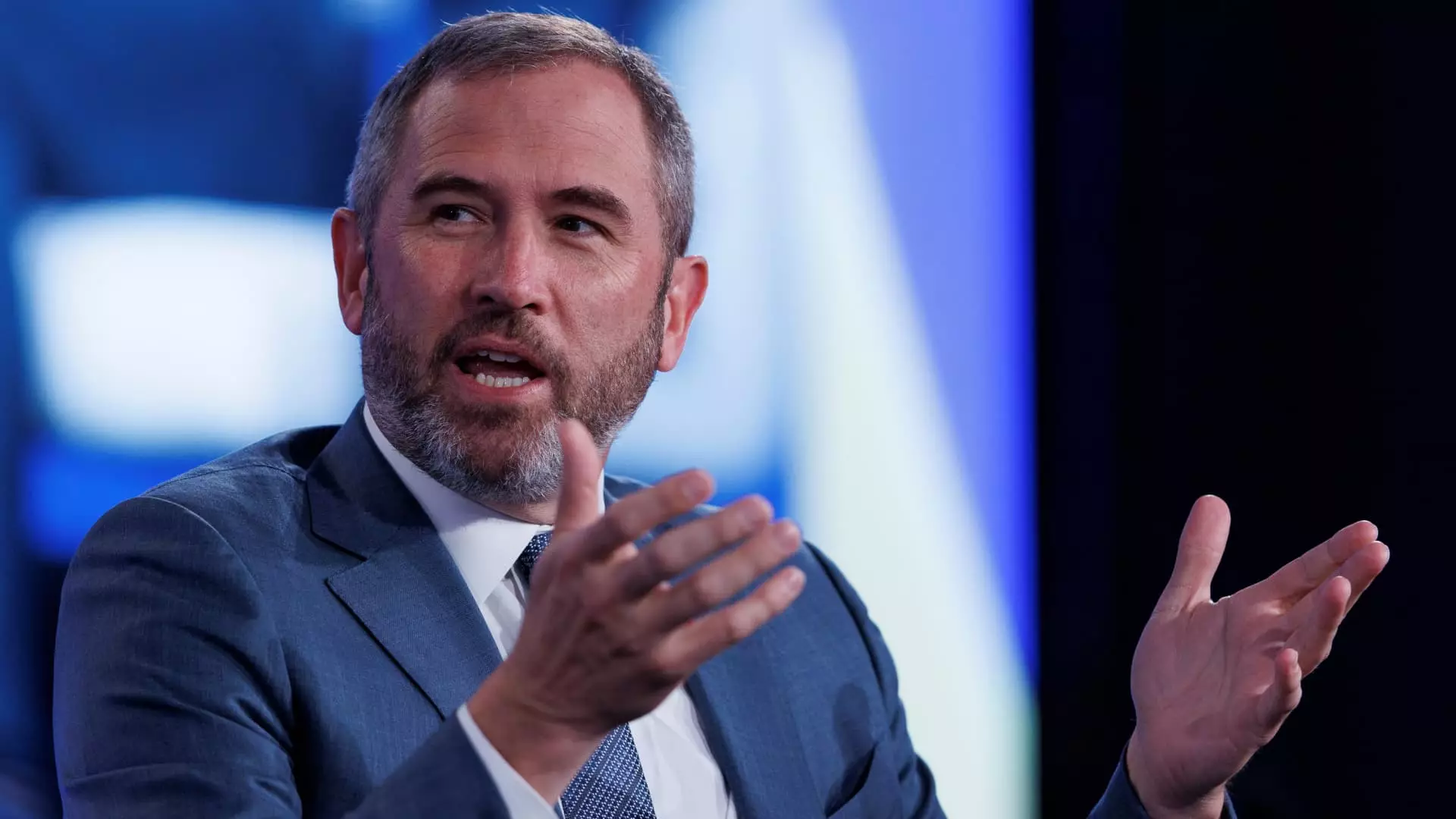The landscape of cryptocurrency is constantly evolving, shaped not only by technological advancements but also by regulatory frameworks. At the forefront of this conversation is Ripple Labs, a company synonymous with the XRP token and known for its global payment solutions. In a recent discussion at DC Fintech Week, Ripple’s CEO Brad Garlinghouse shared his insights, reflecting on the current regulatory environment in the United States and the potential outcomes of the upcoming elections. His thoughts provide a window into the inner workings of the crypto sector and its ongoing struggle for legitimacy within established financial systems.
Garlinghouse has historically expressed skepticism over the regulatory climate in the U.S., yet his recent comments suggest a turning tide. He articulated a sense of optimism regarding the post-election environment, stating that regardless of electoral outcomes, the nation might witness a more favorable attitude towards cryptocurrency and innovation than seen previously. This optimism appears well-founded, considering the evolving political dynamics and the increasing recognition of the importance of blockchain technology in the financial sector.
Ripple’s business model inherently entails working with banks and financial institutions, with a staggering 95% of its operations occurring outside U.S. borders. This statistic underscores a critical point: the convoluted and sometimes adversarial regulatory atmosphere in Washington has driven many crypto enterprises to seek opportunities abroad. In light of Ripple’s protracted legal battles, including the notable Securities and Exchange Commission (SEC) lawsuit from 2020, Garlinghouse’s call for fintech startups to “incorporate outside the United States” echoes the sentiment of many entrepreneurs feeling stifled by domestic policies.
One of the shining moments for Ripple occurred last year when a judge ruled that XRP, when sold to retail investors on exchanges, should not be classified as a security. This verdict not only bolstered Ripple’s position in its ongoing legal disputes but also breathed life into hopes for regulatory clarity within the broader cryptocurrency community. Garlinghouse believes that such legal wins signal a larger shift towards acceptance of crypto assets, regardless of past setbacks.
However, while he maintains a forward-looking perspective, Garlinghouse’s remarks reveal a duality present in the crypto space: the optimism of innovation juxtaposed against the stark realities of regulatory hostility. He made it clear that the Biden administration has taken a hardline stance on crypto, equating it to an “attack.” This characterization of federal policy highlights the challenges that Ripple and others face, as they navigate a complex web of regulations that seem inherently unfriendly to burgeoning technologies.
The conversation surrounding cryptocurrencies has become increasingly partisan, particularly as key political figures make their stances known. Garlinghouse noted the dichotomy between the approaches of different political factions, specifically pointing to former President Trump’s enthusiastic embrace of crypto compared to the more hesitant responses from the Biden administration. His observation resonates with many crypto stakeholders who perceive a bias within governmental agencies, such as the SEC and the Office of the Comptroller of the Currency, against cryptocurrency ventures.
The term “Operation Chokepoint 2.0” has entered the lexicon of crypto advocates to describe what they see as a systematic dismissal of legitimate crypto businesses by banks under pressure from regulators. Garlinghouse’s identification of this phenomenon paints a grim picture for those within the industry, marking a significant hurdle to growth and innovation. Yet, amidst this bleak backdrop, he exudes a cautious optimism about a potential reset, suggesting that changes in Congress could lead to forward momentum in the industry, albeit at an undetermined pace.
Although Garlinghouse has refrained from actively endorsing specific presidential candidates, he recently vocalized his support for attorney John Deaton in his challenge against Senator Elizabeth Warren. Warren’s history of advocating for increased regulation and oversight has positioned her as a polarizing figure among crypto enthusiasts. This endorsement highlights the political engagement of industry leaders who recognize the importance of aligning policies with the realities of technological innovation.
Garlinghouse’s commitment to supporting candidates who promote favorable crypto policies reflects a broader desire for a balanced approach to regulation, one that encourages technological advancement while also addressing potential risks. The push for a more unified front within the crypto community is vital as it navigates the political landscape, ensuring that stakeholders can effectively advocate for their interests in the halls of power.
As Ripple Labs continues to navigate its challenges and opportunities, Garlinghouse’s insights encapsulate the complexities of the current regulatory environment in the U.S. While past obstacles loom large, an emerging optimism hints that the future could foster a more conducive atmosphere for cryptocurrency innovation. With the upcoming elections acting as a potential catalyst for change, the progress of the industry will heavily depend on the political landscape and the alliances formed within it. Despite the hurdles, Garlinghouse’s perspective invites stakeholders to remain hopeful and engaged, ready to shape a future where cryptocurrency technology can thrive.

